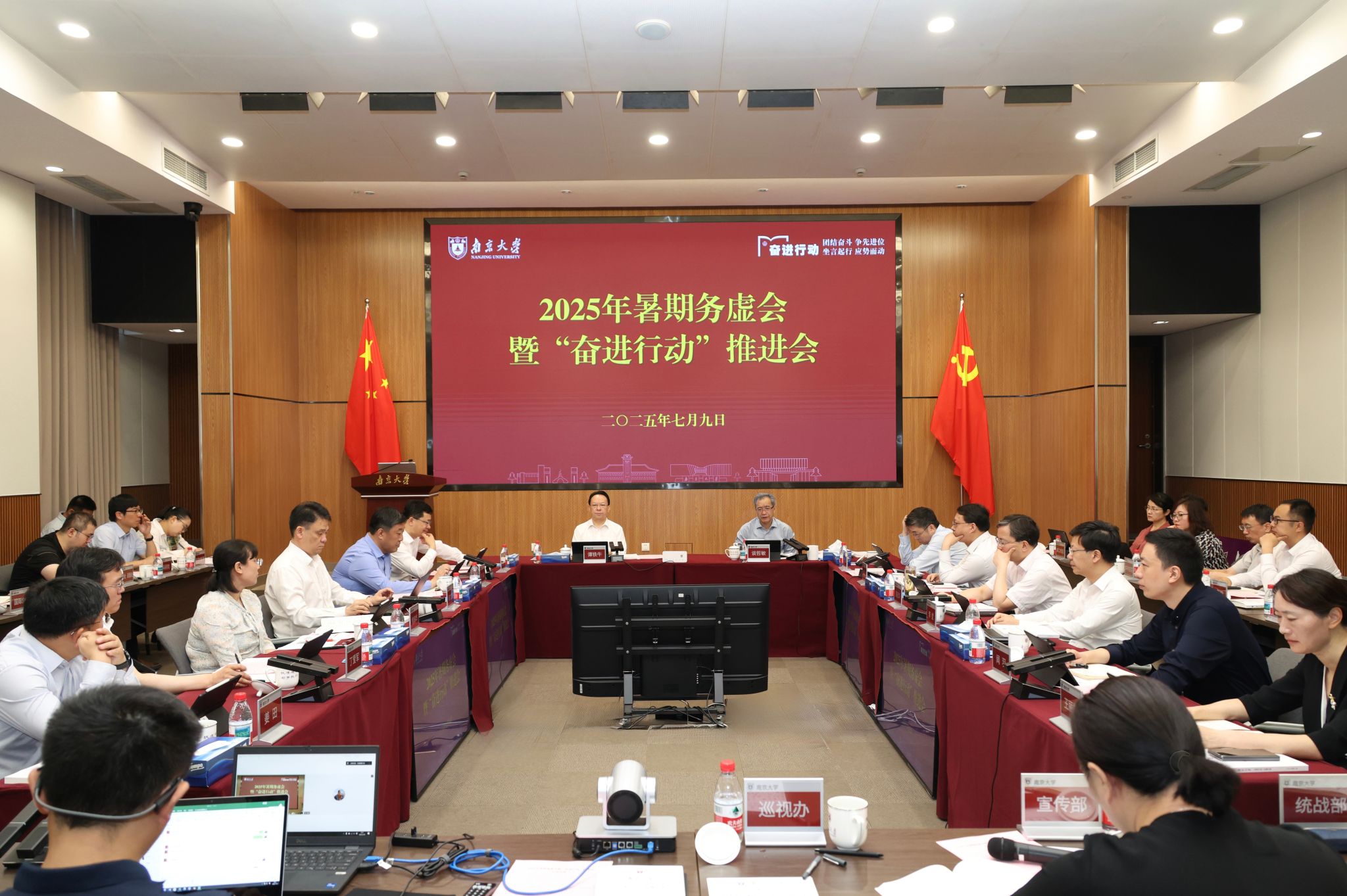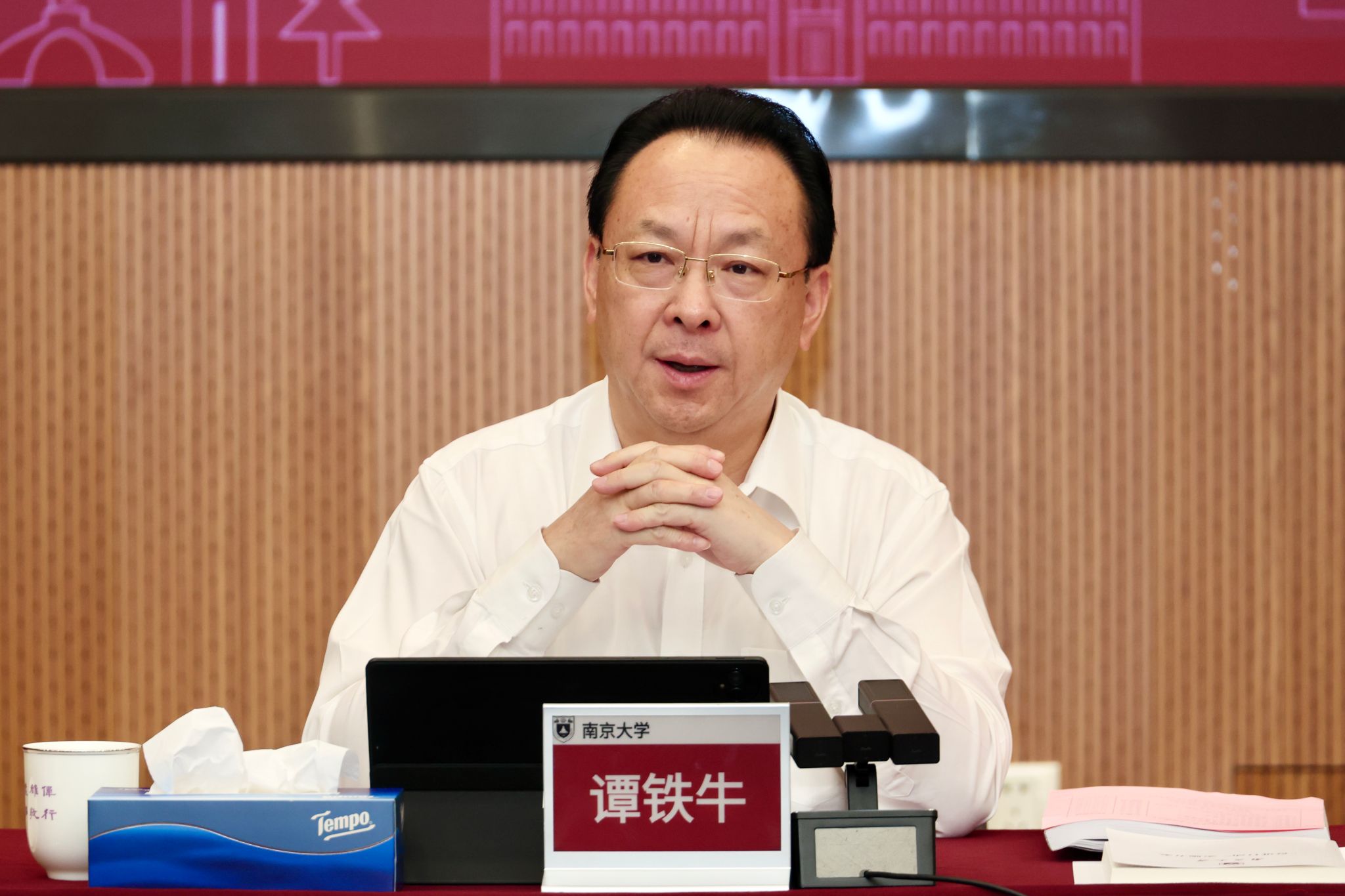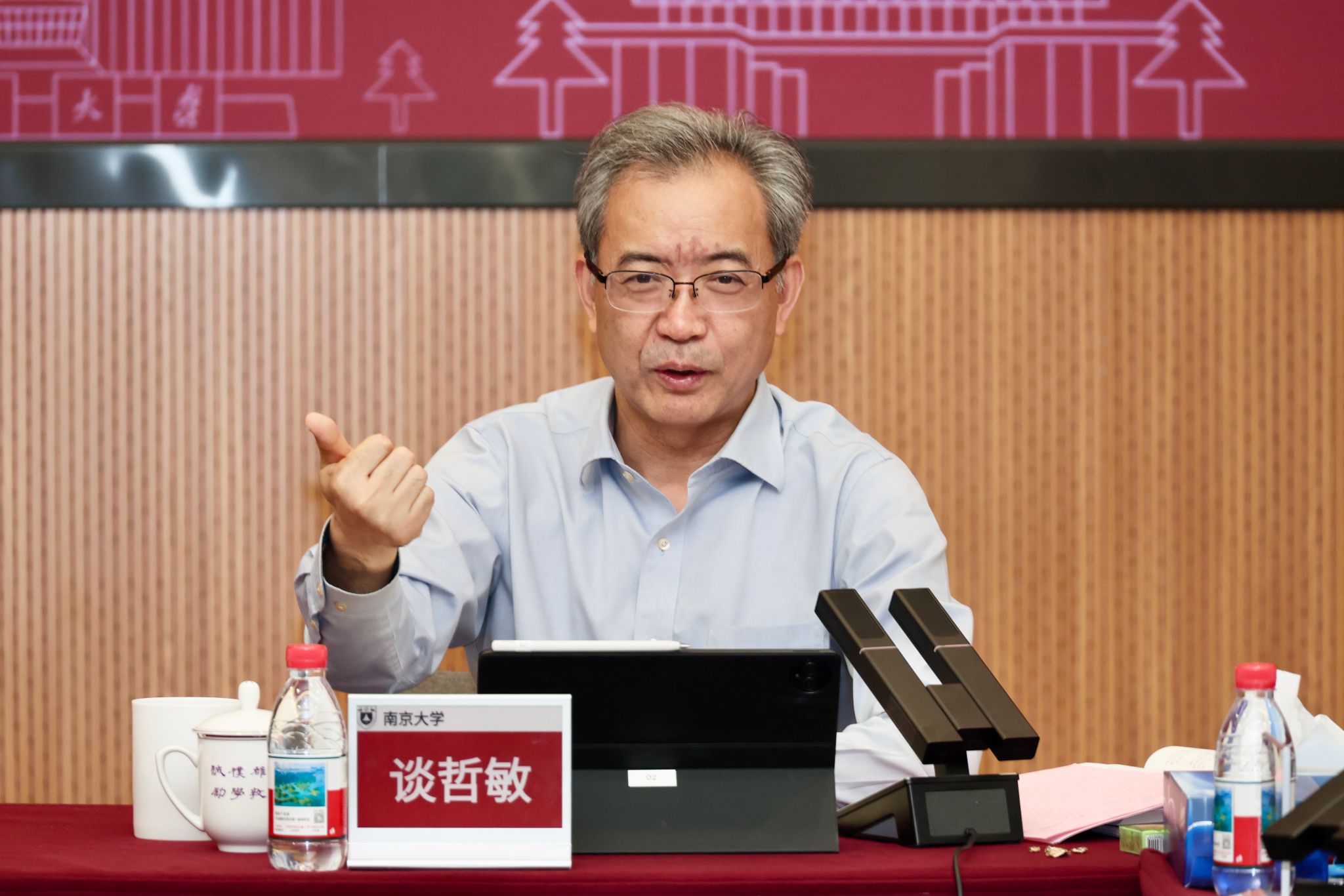On July 9, Nanjing University convened a meeting for advancing the implementation of "Forging Ahead Initiative" on Xianlin Campus. Tan Tieniu, Chair of NJU CPC Council and Academician of the Chinese Academy of Sciences (CAS), and Tan Zhemin, President of NJU and Academician of the CAS, attended the meeting and delivered speeches.

Tan Tieniu stated that this meeting marked the first comprehensive discussion of work following NJU's 12th Party Congress. It serves as a concrete measure to implement the spirit of the Party Congress, reviewing the remarkable achievements of various programs and fields under the "Forging Ahead Initiative" during the past semester, while also clarifying the goals and tasks for the future. Over the recently concluded semester, the entire university worked in unity, focusing on practical efforts and overcoming challenges, which led to steady progress across all fronts and yielded significant results. On behalf of the Party Committee, he expressed heartfelt gratitude and respect for the dedication and hard work of all members of the university.

Tan Tieniu emphasized that 2025 is a critical year for NJU. It marks the conclusion of the "14th Five-Year Plan," the beginning of the "15th Five-Year Plan," and the final sprint for the first cycle of the "Forging Ahead Initiative". Since the launch of the Initiative, the faculty, staff, and students of NJU have united in their efforts, responding effectively to challenges and striving for excellence. They have written a remarkable chapter in building a world-class university with Chinese characteristics. However, he also pointed out that there are still many issues and shortcomings that need to be addressed.
To better implement the spirit of the 12th Party Congress, sustain the momentum of the "Forging Ahead Initiative" and promote high-quality development across all aspects of the university, Tan Tieniu proposed six key requirements. First, to enhance political awareness: strengthen the sense of responsibility and mission, actively participate in the grand endeavor of national development and national rejuvenation, and shoulder the historical mission entrusted to NJU in the new era. Second, to broaden perspectives: expand horizons and actively engage in learning and exchange, stimulating innovative thinking and proposing creative measures to drive high-quality development for the University. Third, to accelerate implementation: carefully review the implementation status of each task under the action plans, address gaps, and prioritize key initiatives to ensure a successful completion. Fourth, to strengthen reform efforts: schools, colleges, and departments must adhere to the task lists for overcoming difficulties, confront problems, and ensure the effective implementation of each reform measure. Fifth, to deepen innovation: further deepen reforms and embrace innovative methods adapted to the demands of the times, continually advancing NJU's development. Sixth, to foster a culture of practical action: maintain a steadfast commitment to practical efforts, ensuring steady progress in all aspects of the University's work.
Tan Tieniu stressed that all members of NJU must strive forward toward the goal of building a world-class university with Chinese characteristics. He called on everyone to contribute to the accelerated construction of a strong nation in education and to the realization of national rejuvenation through Chinese modernization.
Tan Zhemin pointed out that this meeting was the first thematic discussion on NJU's work held by the newly elected leadership team after the successful conclusion of the Party Congress. Through in-depth exchanges of ideas regarding their respective areas of responsibility, the team demonstrated a profound understanding of work patterns and proposed measures that were both targeted and practical, showcasing the proactive and enterprising spirit of the new leadership.

Tan Zhemin outlined three key requirements for the next phase of work. First, to achieve breakthroughs: facing increasingly fierce competition in higher education, NJU must achieve strategic breakthroughs in key areas to realize high-quality development, mainly by strengthening the cultivation and recruitment of leading talents, driving innovation in critical technological fields, seeking new growth points in interdisciplinary areas, and striving for landmark achievements in pivotal domains. Second, to improve efficiency: it is essential to evaluate the ratio of input to output carefully, plan ahead, allocate resources scientifically, and continuously enhance resource utilization efficiency and operational effectiveness to achieve high-efficiency development. Third, to deepen high-quality and comprehensive development: balance expansion with quality improvement, ensuring the quality and efficiency of all initiatives, and explore pathways for high-quality and comprehensive development tailored to NJU's unique circumstances.
Tan Zhemin emphasized that in the future, all members of NJU should work together to ensure the effective implementation of all tasks and steadily advance toward the goal of building a world-class university with Chinese characteristics. He urged the university community to actively serve national strategic needs, making new and greater contributions to the realization of national rejuvenation through Chinese modernization.
During the meeting, university leaders reported on the progress of specific programs under the "Forging Ahead Initiative" for the first half of 2025, and conducted in-depth discussions on plans and proposals for the second half of the year.
Members of the university's leadership team and heads of relevant departments attended the meeting.
